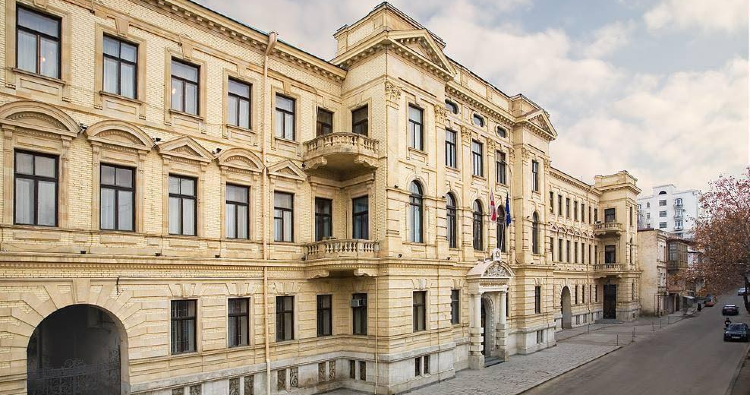Georgian Supreme Court: calls for judge vetting “fundamentally undermine” independence of court, “damage public trust” in justice system

The Court claimed the calls for vetting requirements were a “manipulative, artificially created concern” about the justice system by “interested parties”. It also rejected vetting as not being representative of “the international standard” and said it “harshly violates the sovereignty of the state” and “envisages transferring mechanisms of staffing of court - one of the branches of the state government - to the hands of external actors”. Photo: Georgian Supreme Court/Facebook
The Georgian Supreme Court on Monday said calls by the opposition United National Movement party for introduction of special procedures for checking integrity of domestic judges would “unequivocally, essentially and fundamentally undermine independence of the court or individual judges” and “damage public trust” in the country’s justice system.
In response to the calls made last month, the Court said “enabling use of political influence” over the judiciary procedures aimed “consolidation of negative public opinion on the need for conscience checks” on justice system professionals.
Creating an environment of constant tension in the court has a negative impact on the individual work of each judge. In such conditions, there is a significant attempt to direct attention of the system of common courts towards such processes, which are non-legal and purely political in their content instead of the implementing key functions of justice”, the statement said.
The body also said “honesty, competence and compliance” were “checked with special precision and extra caution” with judges in the existing system, citing the “unprecedented process” of selection of judges for the Supreme Court via a live broadcast in 2021.
It added each judge was also tasked with filling out property declarations annually and publicly, creating a “sufficient information base” for “full monitoring of judges’ property circumstances”.
The Court claimed the calls for vetting requirements were a “manipulative, artificially created concern” about the justice system by “interested parties”. It also rejected vetting as not being representative of “the international standard” and said it “harshly violates the sovereignty of the state” and “envisages transferring mechanisms of staffing of court - one of the branches of the state government - to the hands of external actors”.
 Tweet
Tweet  Share
Share